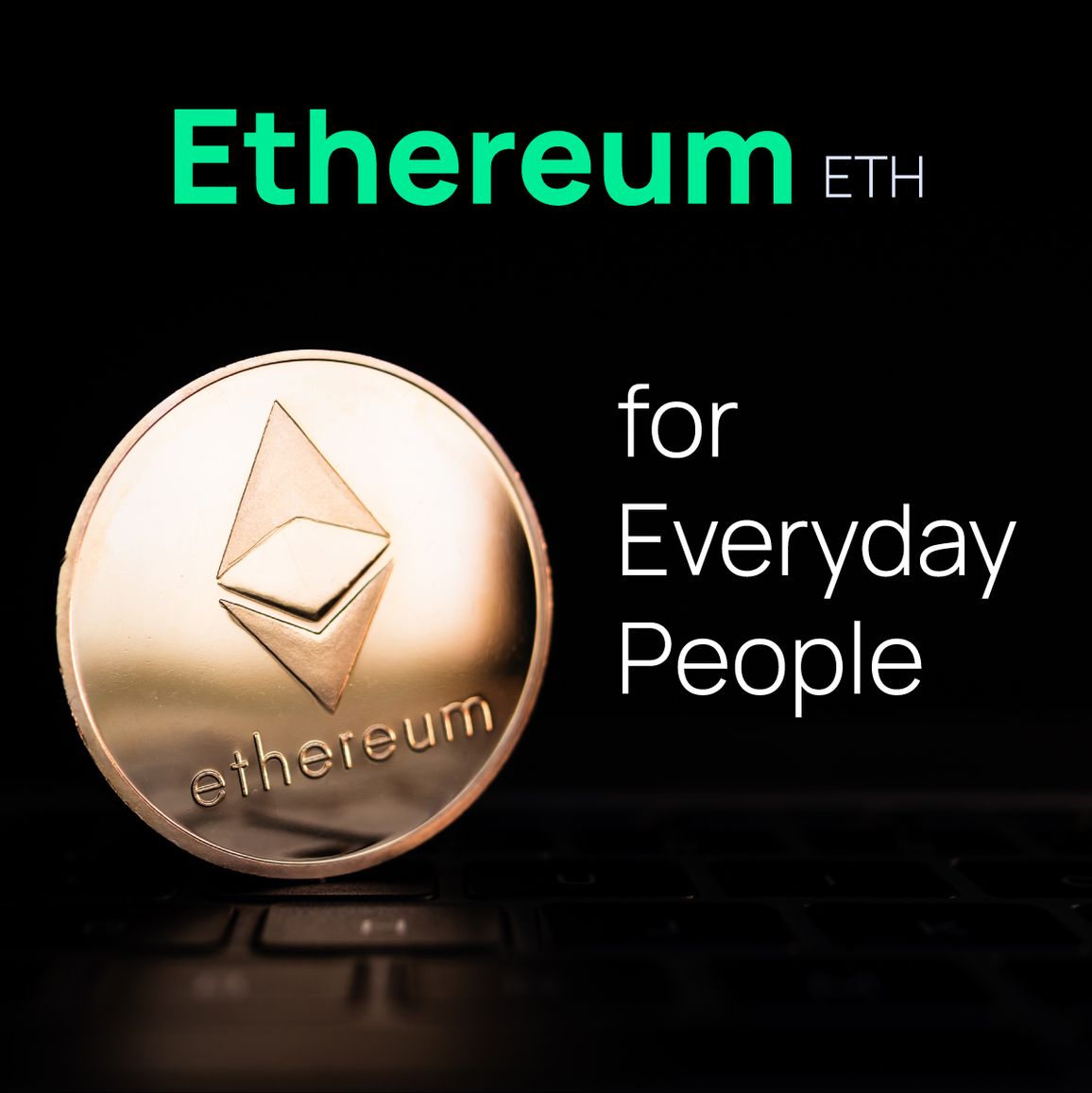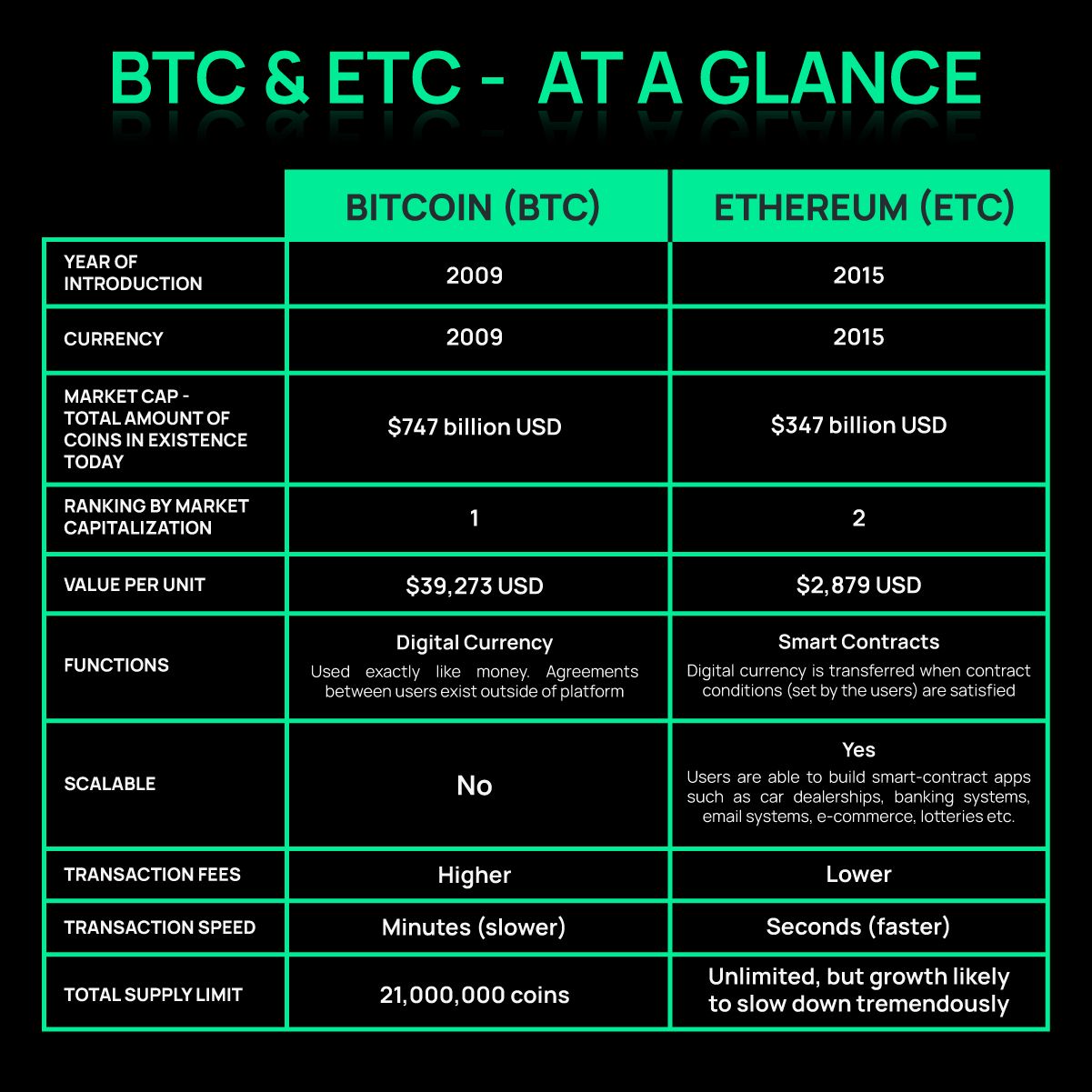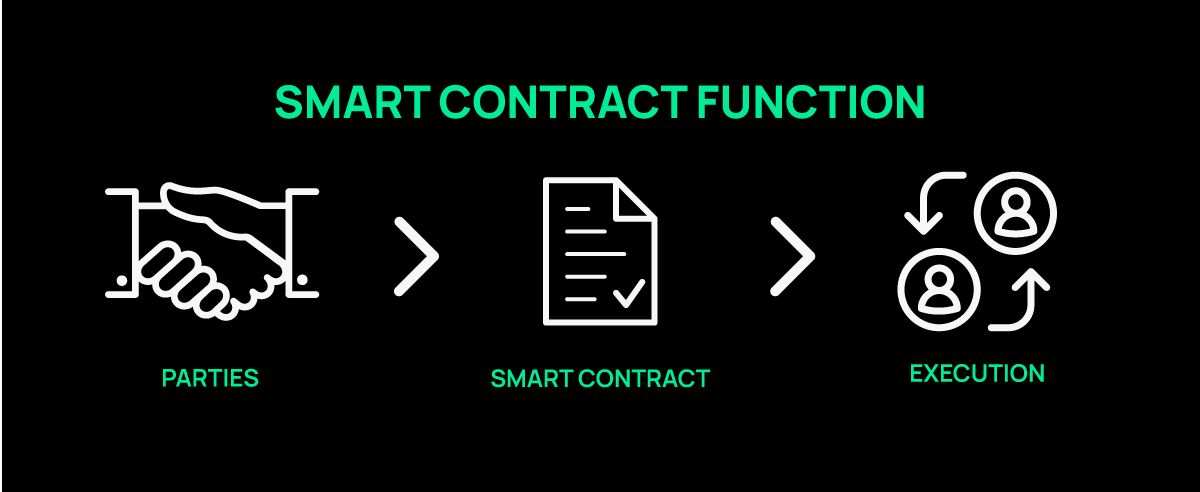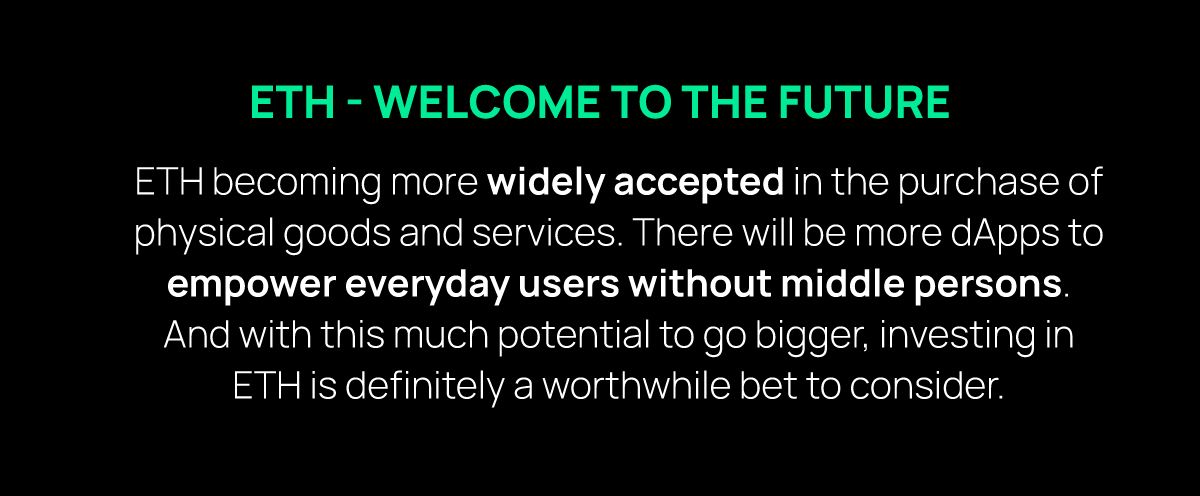Ethereum (ETH) for Everyday People

If you’ve been hearing anything about cryptocurrencies, you would definitely have heard of Ethereum (ETH), the “other” Bitcoin (BTC). To break it down really simply, you’re not entirely wrong. Both are based on blockchain technologies. If you would like a back-to-basics explanation of cryptocurrencies, do read our previous article “History of Bitcoin (BTC) - Made Simple”.
BTC is the world’s most popular, and most-traded digital currency, and ETH is the newer, more scalable platform with more functions than just being a digital currency.
So what’s the hype about ETH? Isn’t it just like trading 2 different currencies, BTC is like USD, ETH is like Euros? Hmm… not exactly. Here, let us give you an introduction to Ethereum (ETH), focusing on the main differences between these 2 platforms, and you’ll see for yourself why it’s kind of “same same but better”.
BTC & ETH - AT A GLANCE

THE MAIN DIFFERENCE - SMART CONTRACT FUNCTION
What’s important to note here is that BTC’s main function is to serve as a peer-to-peer currency without third parties. It is, simply put, just like money. Let’s say I’m buying a song from you (because we want to support your music career by buying from you directly) using BTC,
Step 1: I transfer XX BTC to you and request for an mp3 copy of your latest single “Etherich”
Step 2: You will check your wallet and see if you have received the BTC
Step 3: Once you confirm that the right amount of BTC has been received, I will have to trust that you will send the mp3 file of “Etherich” to my email
Step 4: Luckily, you’re not a cheat and I receive the mp3, and I’m listening to it twenty times a day
However, ETH is more of a platform whose main function is to help users form smart contracts. How does it work in terms of the same mp3 arrangement?
Step 1: We both agree on a contract that the “Etherich” mp3 costs XX ETH. The contract also states that once I pay you XX ETH, the mp3 file will automatically be sent to me via the platform’s function.
Step 2: I transfer XX ETH to you (the platform recognises that the condition of the contract is met)
Step 3: The automated process transfers the mp3 file to me instantly, without you needing to do it manually.
In short, on the ETH network, smart contracts make exchanges safer, without needing the different parties to trust one another once they have agreed on the contract terms.

THE OTHER AMAZING DIFFERENCE - DECENTRALIZED APPS (dApps)
On the ETH platform, users can use a programming language similar to Javascript, called Solidity, to create their own apps. BTC does not provide such a capability.
These decentralized apps store their data on the Blockchain, in the “cloud’’, so there’s no need for a huge data centre to store profiles, contracts, transaction data etc. This revolutionary idea simply means that your data is a lot safer from hackers because there is no single location to break into.
Having users being able to create apps, using the smart contracts concept explained above, has the potential to provide ETH users safer ways of making transfers of digital assets, and also more private and anonymous ways to interact with other users online.
An exciting development is the big idea of Decentralized Autonomous Organizations (DAO). These serve as web-based companies that are owned by every member, and all decisions are made through voting, so everyone has a fair say. So all activity is 100% transparent, and there’s no shady CEO pulling the strings for his or her own profit. Here’s where you can check out some of the DAOs:
- Meta Gamma Delta - an inclusive and empowering society supporting women-led projects
- Herodao - a community-owned superhero franchise (yes, you could “own” a superhero company)
- MachiX - a collective of artists and patrons, curating and trading digital art
- MetaFactory - a collectively owned and managed fashion and culture network
There’s a lot more potential in this field that celebrates the peer-to-peer interaction without a third party or an agent. So there’s no more big company trying to make money off every transaction you’re making, or benefitting off your own hard work. Right now, of course, many of these apps are still in developmental stages, and it’s usually the best time for first movers to get followers, knowledge, and experience.
dApps are free from censorship (we all know the pros and cons), don’t experience downtime due to a decentralized database, provides greater privacy, and gives a lot more security because of the blockchain concept.
ETH - WELCOME TO THE FUTURE
In the pursuit of making the Internet safer for all of us, with more privacy, and greater stability, ETH is definitely the place we are looking at in the future. It’s a little like the Internet's own way of sticking it to the Big Brother, and the big corporations.
Currently, we are seeing high gas fees for ETH transactions, which do turn away some users. Other ecosystems have emerged to challenge the status of ETH, touting lower fees, greater security, and faster speeds, such as Solana (SOL) and Polkadot (DOT). But of course, ETH, with its coming updates, will attempt to solve its problems and maintain its position on the top spot.
We also see ETH becoming more widely accepted in the purchase of physical goods and services. There will be more dApps to empower everyday users without middle persons. And with this much potential to go bigger, investing in ETH is definitely a worthwhile bet to consider.

Our team at Bit.com is excited to help you through this journey. Talk to us, sign up for an account, or download our app today. Become the early mover in the world of ETH, it’s time to Switch on Your Future.

